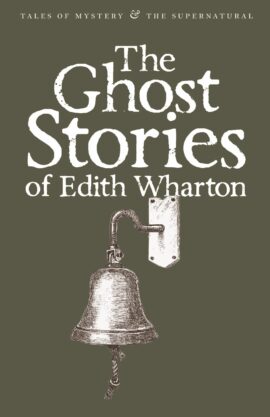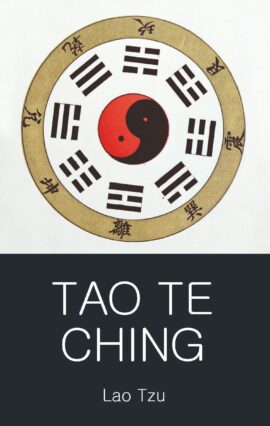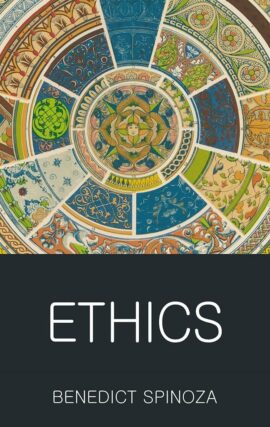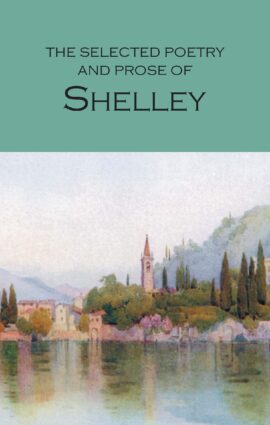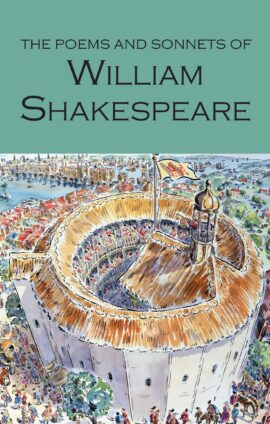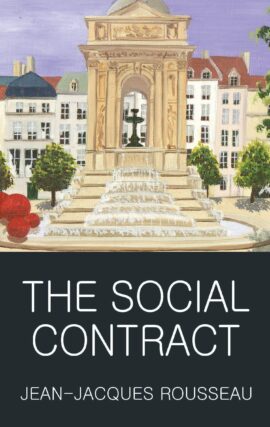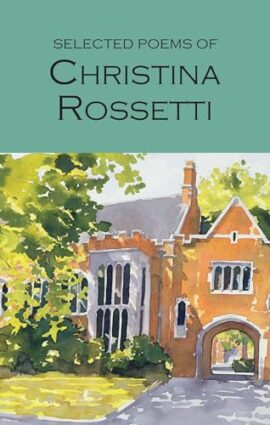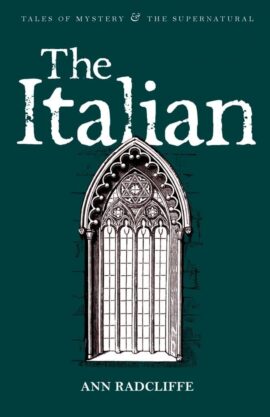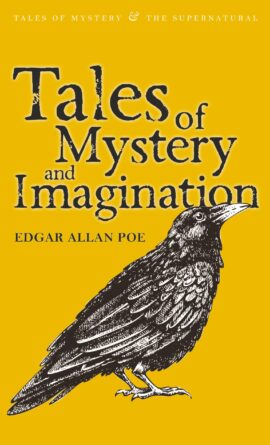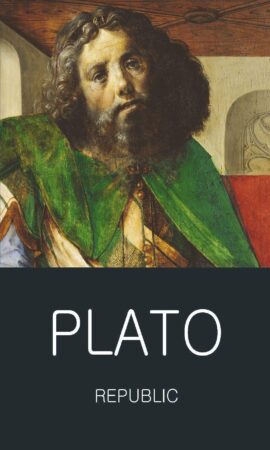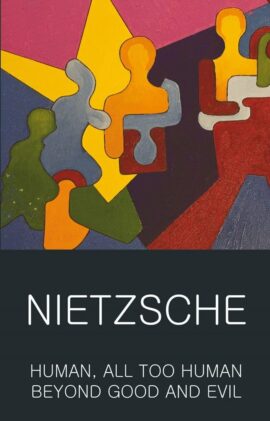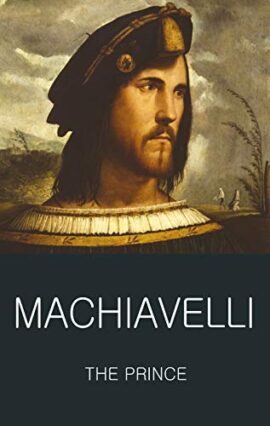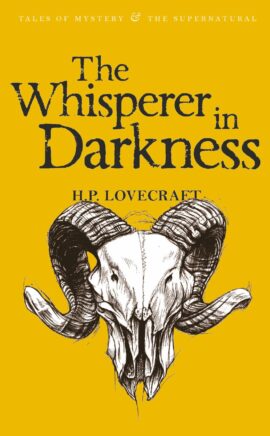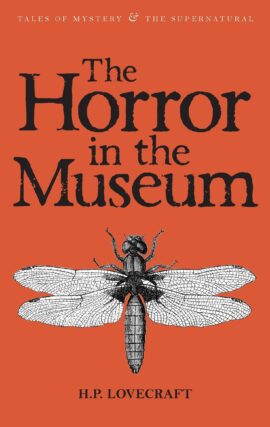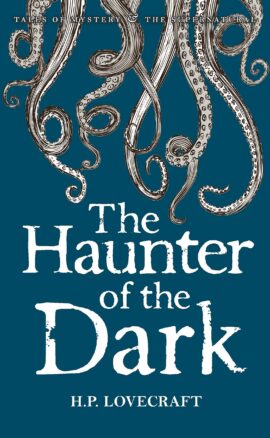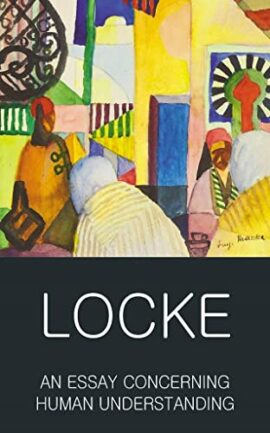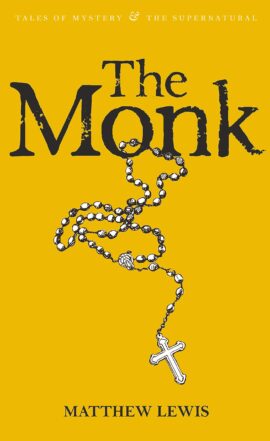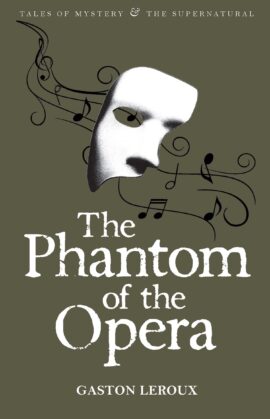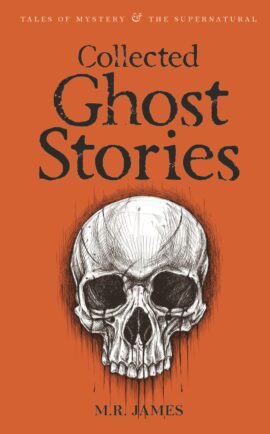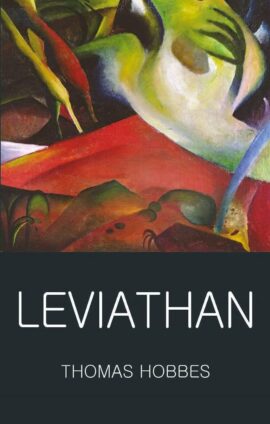Affichage de 4276–4300 sur 7282 résultatsTrié par prix décroissant
Ghost Stories of Edith Wharton (Tales of Mystery & the Supernatural)
Ghost Stories of Edith Wharton by Edith Wharton. Traumatised by ghost stories in her youth, Pulitzer Prize winning author Edith Wharton (1862 -1937) channelled her fear and obsession into creating a series of spine-tingling tales filled with spirits beyond the grave and other supernatural phenomena. While claiming not to believe in ghosts, paradoxically she did confess that she was frightened of them. Wharton imbues this potent irrational and imaginative fear into her ghostly fiction to great effect. In this unique collection of finely wrought tales Wharton demonstrates her mastery of the ghost story genre. Amongst the many supernatural treats within these pages you will encounter a married farmer bewitched by a dead girl: a ghostly bell which saves a woman's reputation: the weird spectral eyes which terrorise the midnight hours of an elderly aesthete: the haunted man who receives letters from his dead wife: and the frightening power of a doppelganger which foreshadows a terrible tragedy. Compelling, rich and strange, the ghost stories of Edith Wharton, like vintage wine, have matured and grown more potent with the passing years.
Tao Te Ching (Wordsworth Classics of World Literature)
Tao Te Ching by Lao Tzu is the first great classic of the Chinese school of philosophy called Taoism. Within its pages is summed up a complete view of the cosmos and how human beings should respond to it. A profound mystical insight into the nature of things forms the basis for a humane morality and vision of political utopia. The ideas in this work constitute one of the main shaping forces behind Chinese spirituality, art and science, so much so that no understanding of Chinese civilisation is possible without a grasp of Taoism. This edition presents the authoritative translation by Arthur Waley, with a new Introduction reflecting recent developments in the interpretation of the work.
India: Land of Celebration
Dracula and Dracula's Guest & Other Stories Edited and Introduced by David Stuart DaviesThe above is followed with a rich collection of Stoker's macabre tales including Dracula's Guest (which was omitted from the final version of Dracula): a devilishly dangerous haunted room in 'The Judge's House': a fatalistic tragedy in 'The Burial of the Rats': a terror of revenge from beyond the grave in 'The Secret of Growing Gold', and a surprising twist in the tail in 'The Gypsy's Prophecy'. Other strange and frightening episodes provide a feast of terror for those readers who like to be unnerved as well as entertained.DraculaIntroduction and Notes by Dr David Rogers, Kingston University'There he lay looking as if youth had been half-renewed, for the white hair and moustache were changed to dark iron-grey, the cheeks were fuller, and the white skin seemed ruby-red underneath: the mouth was redder than ever, for on the lips were gouts of fresh blood, which trickled from the corners of the mouth and ran over the chin and neck. Even the deep, burning eyes seemed set amongst the swollen flesh, for the lids and pouches underneath were bloated. It seemed as if the whole awful creature were simply gorged with blood: he lay like a filthy leech, exhausted with his repletion.' Thus Bram Stoker, one of the greatest exponents of the supernatural narrative, describes the demonic subject of his chilling masterpiece Dracula a truly iconic and unsettling tale of vampirism.
Ethics (Wordsworth Classics of World Literature)
Ethics by Benedict de Spinoza demonstrated in Geometrical Order shows us the reality behind this enigmatic figure. First published by his friends after his premature death at the age of forty-four, the Ethics uses the methods of Euclid to describe a single entity, properly called both 'God' and 'Nature', of which mind and matter are two manifestations. From this follow, in ways that are strikingly modern, the identity of mind and body, the necessary causation of events and actions, and the illusory nature of free will.
The Works Of P. B. Shelley
With an Introduction, Notes and Bibliography by Dr Bruce Woodcock, Senior Lecturer in English, University of Hull.Shelley's short, prolific life produced some of the most memorable and well-known lyrics of the Romantic period. But he was also the most radical writer in the English literary tradition of his day, a fiery political visionary committed to social change and progress.The generous selection in this volume represents the wide range of his writing, both poetry and prose. Arranged chronologically, the accompanying introductory essays set Shelley's works in their historical, social and political context. They provide a vivid insight into the life and times of this volcanic spirit whose inspiring voice called on the people of England to: 'Rise like lions after slumberIn unvanquishable number:Shake your chains to earth like dewWhich in sleep had fallen on you.Ye are many, they are few.'(The Mask of Anarchy)
Poems & Sonnets of William Shakespeare (Wordsworth Poetry)
Poems & Sonnets of William Shakespeare by William Shakespeare. Shakespeare's sonnets have an intensity of both feeling and meaning unmatched in English sonnet form. They divide into two parts: the first 126 sonnets are addressed to a fair youth for whom the poet has an obsessive love and the second chronicles his love for the notorious 'Dark Lady'. In addition to the sonnets, this volume includes Shakespeare's two lengthy narrative poems on classical themes, 'The Rape of Lucrece' which looks forward to the dark imagery of Macbeth, and 'Venus and Adonis' which mixes ribaldry and tragedy in unique Shakespearean manner. 'The Phoenix and the Turtle' is a beautiful metaphysical and allegorical short elegy, and takes its place with Shakespeare's better-known poetry.
The Social Contract (Classics of World Literature)
With an Introduction by Derek Matravers.In The Social Contract Rousseau (1712-1778) argues for the preservation of individual freedom in political society. An individual can only be free under the law, he says, by voluntarily embracing that law as his own. Hence, being free in society requires each of us to subjugate our desires to the interests of all, the general will.Some have seen in this the promise of a free and equal relationship between society and the individual, while others have seen it as nothing less than a blueprint for totalitarianism. The Social Contract is not only one of the great defences of civil society, it is also unflinching in its study of the darker side of political systems.
Selected Poems of Rossetti (Wordsworth Poetry)
Selected Poems of Rossetti by Christina Rossetti. Christina Rossetti is widely regarded as the most considerable woman poet in England before the twentieth century. No reading of nineteenth century poetry can be complete without attention to this prolific and popular poet. Rosetti s inner life dominates her poetry, exploring loss and unattainable hope. Her divine poems have a freshness and toughness of thought, while many of her love poems are erotic, and as often express love for women as for men. The varied threads of Rossetti's concerns are drawn together in what is perhaps her greatest poem, the strange and ambiguous Goblin Market.304
The Italian (Tales of Mystery & the Supernatural)
The Italian by Ann Radcliffe defined the terror genre of writing and helped to establish the Gothic novel, thrilling readers with her mysterious plots and eerie effects. In The Italian she rejects the rational certainties of the Enlightenment for a more ambiguous and unsettling account of what it is to be an individual - particularly a woman - in a culture haunted by history and dominated by institutional power.
Tales of Mystery & Imagination (Tales of Mystery & the Supernatural)
Tales of Mystery & Imagination by Edgar Allan Poe. With an Introduction by John S. Whitley, University of Sussex This collection of Poe s best stories contains all the terrifying and bewildering tales that characterize his work. As well as the Gothic horror of such famous stories as The Pit and the Pendulum, The Fall of the House of Usher, The Premature Burial and The Tell-Tale Heart, all of Poe s Auguste Dupin stories are included. These are the first modern detective stories and include The Murders in the Rue Morgue, The Mystery of Marie Roget and The Purloined Letter.
Symposium and The Death of Socrates (Classics of World Literature)
With an Introduction by Jane O'Grady. Translated by Tom Griffith.In Symposium, a group of Athenian aristocrats attend a party and talk about love, until the drunken Alcibiades bursts in and decides to discuss Socrates instead. Symposium gives an unsurpassed picture of the sparkling society that was Athens at the height of her empire.The setting of the other dialogues is more sombre. Socrates is put on trial for impiety, and sentenced to death. Euthyphro discusses the nature of piety, Apology is Socrates' speech in his own defence, Crito explains his refusal to escape punishment, and Phaedo gives an account of Socrates' last day.These dialogues have never been offered in one volume before. Tom Griffith's Symposium has been described as 'possibly the finest translation of any Platonic dialogue'. All the other translations are new.
the_republic
Translated by John Llewelyn Davies and David James Vaughan. With an Introduction by Stephen Watt.The ideas of Plato (c429-347BC) have influenced Western philosophers for over two thousand years. Such is his importance that the twentieth-century philosopher A.N. Whitehead described all subsequent developments within the subject as foot-notes to Plato's work. Beyond philosophy, he has exerted a major influence on the development of Western literature, politics and theology.The Republic deals with the great range of Plato's thought, but is particularly concerned with what makes a well-balanced society and individual. It combines argument and myth to advocate a life organized by reason rather than dominated by desires and appetites. Regarded by some as the foundation document of totalitarianism, by others as a call to develop the full potential of humanity, the Republic remains a challenging and intensely exciting work.
Human, All Too Human & Beyond Good and Evil (Classics of World Literature)
Human, All Too Human (1878) marks the point where Nietzsche abandons German romanticism for the French Enlightenment. At a moment of crisis in his life (no longer a friend of Richard Wagner, forced to leave academic life through ill health), he sets out his views in a scintillating and bewildering series of aphorisms which contain the seeds of his later philosophy (e.g. the will to power, the need to transcend conventional Christian morality). The result is one of the cornerstones of his life's work. It well deserves its subtitle `A Book for Free Spirits', and its original dedication to Voltaire, whose project of radical enlightenment here finds a new champion. Beyond Good and Evil (1886) is a scathing and powerful critique of philosophy, religion and science. Here Nietzsche presents us with problems and challenges that are as troubling as they are inspiring, while at the same time outlining the virtues, ideas, and practices which will characterise the philosophy of the future. Relentless, energetic, tirelessly probing, he both determines that philosophy's agenda and is himself the embodiment of the type of thought he wants to foster.
The Prince (Wordsworth Classics of World Literature)
Translated by C.E.Detmold. With an Introduction by Lucille Margaret Kekewich.Written in 1513 for the Medici, following their return to power in Florence, The Prince is a handbook on ruling and the exercise of power. It remains as relevant today as it was in the sixteenth century. Widely quoted in the Press and in academic publications, The Prince has direct relevance to the issues of business and corporate governance confronting global corporations as they enter a new millennium.Much of what Machiavelli wrote has become the common currency of realpolitik, yet still his ideas retain the power to shock and annoy. In the words of Norman Stone, The Prince is 'a manual of man-management that would suit a great many parts of the modern world'.
Jack the Ripper (Tales of Mystery & the Supernatural)
Horrific, horrendous, unspeakable, The Whitechapel Murderer, Jack the Ripper, stalked the streets of East London in 1888, slaughtering prostitutes and bewildering the police who were hunting him. They never succeeded in apprehending him, and to this day the mystery of his identity remains an enigma. But he did leave clues to his identity, and numerous theories have been entertained throughout the one hundred and twenty years since he held London's East End in his grip of terror.This book looks at the evidence left by the murderer and the reports and investigative papers which recorded the atrocities that the Ripper performed. It takes time to analyse the existing information and evaluate the letters sent to the police. It is the strongest and most powerful book ever written on the murders. It dispels a lot of myths attached to the Ripper, and eliminates a lot of the previously conjectured perpetrators, leaving only those who realistically could have been...Jack the Ripper.
The Whisperer in Darkness: Collected Short Stories Vol I (Tales of Mystery & the Supernatural)
The Whisperer in Darkness: Collected Short Stories Vol I by H.P. Lovecraft. Selected and Introduced by M.J. Elliott, That is not dead that can eternal lie And with strange aeons even death may die Millenia ago, the Old Ones ruled our planet. Since that time, they have but slumbered. But when a massive sea tremor brings the ancient stone city of R'lyeh to the surface once more, the Old Ones awaken at last. The Whisperer in Darkness brings together the original Cthulhu Mythos stories of the legendary horror writer H.P. Lovecraft. Included in this volume are several early tales, along with the classics The Call of Cthulhu, The Dunwich Horror and At the Mountains of Madness. Arm yourself with a copy of Abdul Alhazred's fabled Necronomican and prepare to face terrors beyond the wildest imaginings of all save H.P. Lovecraft.
Collected Short Stories The Horror in the Museum by Lovecraft, H. P. ( Author ) ON Jan-05-2010, Paperback
With an Introduction by M.J. Elliott. 'My eyes, perversely shaken open, gazed for an instant upon a sight which no human creature could even imagine without panic, fear and physical exhaustion...'A wax museum in London boasts a new exhibit, which no man has seen and remained sane... A businessman is trapped in a train carriage with a madman who claims to have created a new and efficient method of capital punishment... A doctor plans a horrible revenge, using as his murder weapon an insect believed capable of consuming the human soul... Within these pages, some of H P Lovecraft's more obscure works of horror and science fiction can be found, including several fantastic tales from his celebrated Cthulhu Mythos. No true Lovecraft aficionado dare be without this volume.
Haunter of the Dark
The Haunter of the DarkSelected and Introduced by M J Elliott‘They were removing the stones quietly, one by one, from the centuried wall. And then, as the breach became large enough, they came out into the laboratory in single file: led by a stalking thing with a beautiful head made of wax.’From the dark, mind-expanding imagination of H P Lovecraft, Wordsworth presents a third volume of tales penned by the greatest horror writer of the 20th Century. Here are some of Lovecraft’s weirdest flesh-creeping masterpieces, including Pickman's Model, The Shunned House, his famous serial Herbert West – Reanimator, and several classic tales from the Cthulhu Mythos, in which mankind is subjected to the unimaginable terrors known only to those who have read from the forbidden Necronomicon. Also included in this compelling collection are the complete Randolph Carter stories, chronicling his adventures in this world and the realm of his dreams, where he faces perils beyond comprehension.
An Essay Concerning Human Understanding: Second Treatise of Goverment (Wordsworth Classics of World Literature) (English and German Edition)
An Essay Concerning Human Understanding: Second Treatise of Goverment (Wordsworth Classics of World Literature) by John Locke. Notes and Introduction by Mark G. Spencer, Brock University, Ontario John Locke (1632-1704) was perhaps the most influential English writer of his time. His Essay concerning Human Understanding (1690) and Two Treatises of Government (1690) weighed heavily on the history of ideas in the eighteenth century, and Locke's works are often - rightly - presented as foundations of the Age of Enlightenment. Both the Essay and the Second Treatise (by far the more influential of the Two Treatises) were widely read by Locke's contemporaries and near contemporaries. His eighteenth-century readers included philosophers, historians and political theorists, but also community and political leaders, engaged laypersons, and others eager to participate in the expanding print culture of the era. His epistemological message that the mind at birth was a blank slate, waiting to be filled, complemented his political message that human beings were free and equal and had the right to create and direct the governments under which they lived. Today, Locke continues to be an accessible author. He provides food for thought to university professors and their students, but has no less to offer the general reader who is eager to enjoy the classics of world literature.
The Monk
With an Introduction by Kathryn White.Prepare to be shocked. This novel, written in 1796, is a Gothic festival of sex, magic and ghastly, ghostly violence rarely seen in literature. The Monk is remarkably modern in style and tells a breathless tale of temptation, imprisonment and betrayal. Matthew Lewis recounts the downfall of Ambrosio, the holier-than-thou monk seduced within the walls of a Madrid abbey until he heads for the utter corruption of the soul. Meanwhile, two sets of young lovers are thwarted and the reader thrills to pursuits through the woods by bandits and is chilled by the spectre of nuns imprisoned in vermin-ridden and skeleton-crowded vaults.Late Eighteenth Century audiences were polarised in opinion as to the novel's merits. Lord Byron and the Marquis de Sade were impressed by Lewis's daring, while Coleridge warned parents against The Monk's suitability for their sons or daughters, describing the novel as 'poison for youth. If you want a novel that still terrifies, over two hundred years after it was written, there is none finer than The Monk.
Phantom of the Opera (Tales of Mystery & the Supernatural)
Phantom of the Opera by Gaston Leroux. With an Introduction by David Stuart Davies ... the shadow turned round: and I saw a terrible death s-head, which darted a look at me from a pair of scorching eyes. I felt as if I were face to face with Satan... Erik, the Phantom of the Paris Opera House, is one of the great icons of horror literature. This tormented and disfigured creature has made his home in the labyrinthine cellars of this opulent building where he can indulge in his great passion for music, which is a substitute for the love and emotion denied him because of his ghastly appearance. It is in the Opera House that he encounters Christine Daaé whom he trains in secret to become a great singer. Erik s passionate obsession with a beautiful woman beyond his reach is doomed and leads to the dramatic tragic finale. Gaston Leroux s novel is a marvellous blend of detective story, romance and spine-tingling terror which has fascinated readers ever since the work was first published.
The Works of John Keats (Wordsworth Poetry Library)
With an Introduction by Paul Wright.'What the imagination seizes as Beauty must be truth' So wrote the Romantic poet John Keats (1795-1821) in 1817. This collection contains all of his poetry: the early work, which is often undervalued even today, the poems on which his reputation rests including the 'Odes' and the two versions of the uncompleted epic 'Hyperion', and work which only came to light after his death including his attempts at drama and comic verse.It all demonstrates the extent to which he tested his own dictum throughout his short creative life. That life spanned one of the most remarkable periods in English history in the aftermath of the French Revolution and this collection, with its detailed introductions and notes, aims to place the poems very much in their context. The collection is ample proof that Keats deservedly achieved his wish to 'be among the English Poets after my death'
Collected Ghost Stories
Collected Ghost Stories by M. R. James. M.R. James is probably the finest ghost-story writer England has ever produced. These tales are not only classics of their genre, but are also superb examples of beautifully-paced understatement, convincing background and chilling terror. As well as the preface, there is a fascinating tail-piece by M.R. James, Stories I Have Tried To Write , which accompanies these thirty tales. Among them are 'Casting the Runes', 'Oh, Whistle and I'll come to you, My Lad', 'The Tractate Middoth', 'The Ash Tree' and 'Canon Alberic's Scrapbook'. There are some authors one wishes one had never read in order to have the joy of reading them for the first time. For me, M.R. James is one of these . Ruth Rendall
Leviathan (Wordsworth Classics of World Literature)
Leviathan by Thomas Hobbes with an Introduction by Dr Richard Serjeantson, Trinity College, Cambridge Since its first publication in 1651, Thomas Hobbes's Leviathan has been recognised as one of the most compelling, and most controversial, works of political philosophy written in English. Forged in the crucible of the civil and religious warfare of the mid-seventeenth century, it proposes a political theory that combines an unequivocal commitment to natural human liberty with the conviction that the sovereign power of government must be exercised absolutely. Leviathan begins from some shockingly naturalistic starting-points: an analysis of human nature as being motivated by vain-glory and pride, and a vision of religion as simply the fear of invisible powers made up by the mind. Yet from these deliberately unpromising elements, Hobbes constructs with unparalleled forcefulness an elaborate, systematic, and comprehensive account of how political society ought to be: ordered, law-bound, peaceful. In Leviathan, Hobbes presents us with a portrait of politics which depicts how a state that is made up of the unified body of all its citizens will be powerful, fruitful, protective of each of its members, and - above all - free from internal violence.
Histories (Wordsworth Classics of World Literature)
Translated with Notes by George Rawlinson. With an Introduction by Tom Griffith.Herodotus (c480-c425) is 'The Father of History' and his Histories are the first piece of Western historical writing. They are also the most entertaining.Why did Pheidippides run the 26 miles and 385 yards (or 42.195 kilometres) from Marathon to Athens? And what did he do when he got there? Was the Battle of Salamis fought between sausage-sellers? Which is the oldest language in the world? Why did Leonidas and his 300 Spartans spend the morning before the battle of Thermopylae combing their hair? Why did every Babylonian woman have to sit in the Temple of Aphrodite until a man threw a coin into her lap, and how long was she likely to sit there? And what is the best way to kill a crocodile?This wide-ranging history provides the answers to all these fascinating questions as well as providing many fascinating insights into the Ancient World.





























